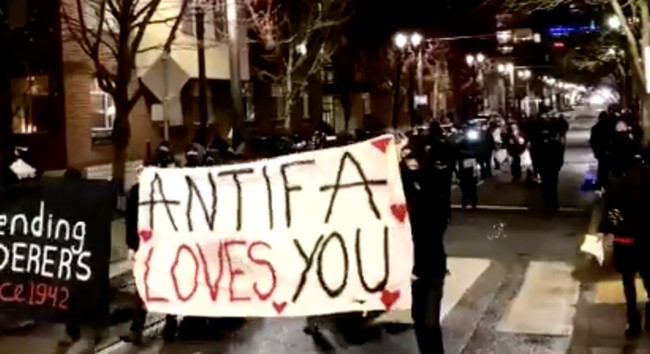
This week, federal prosecutors brought charges against another one of President Donald Trump's political enemies. After interim U.S. Attorney for the Eastern District of Virginia Lindsey Halligan secured a grand jury indictment against former FBI Director James Comey two weeks ago, Halligan obtained another indictment, this time against New York Attorney General Letitia James, on Thursday.
The indictment of James is every bit as lackluster as the one against Comey, if not more so. According to the indictment, a grand jury charged James with one count of bank fraud and one count of making false statements to a financial institution. It states that in August 2020, James secured a mortgage from OVM Financial to purchase a property in Norfolk, Virginia. As part of the loan approval process, she signed a second home rider—which, in the language of the indictment, required her "as the sole borrower to occupy and use the property as her secondary residence, and prohibited its use as a timesharing or other shared ownership arrangement or agreement that requires her to rent the property or give any other person any control over the occupancy or use of the property."
"Despite these representations," the indictment claims the Norfolk property "was not occupied or used by JAMES as a secondary residence and was instead used as a rental investment property." It alleges that by claiming the property as a second residence, James qualified for a 3-percent interest rate, and if she had instead applied for a loan as an investment property, her "comparable investment property rate" would have been 3.815 percent; that reduction saved money in both interest and seller credit, "for total ill-gotten gains of approximately $18,933 over the life of the loan."
If the details of the case sound familiar, they should: As Andrew C. McCarthy notes at National Review, it's quite similar to a case James brought against Trump while he was out of office.
James sued Trump and his business associates in 2022 "for years of financial fraud." She alleged the then-former president had routinely overstated the value of his commercial assets to get more favorable terms on bank loans. Last year, a judge ordered Trump and his co-defendants to pay $464 million, though a state appeals court later overturned the judgment amount.
"On its face, a penalty of nearly half a billion dollars is hard to fathom given that no lender or insurer claimed it suffered a financial loss as a result of the transactions at the center of the case," Reason's Jacob Sullum wrote at the time. "But the law under which James sued Trump and his co-defendants does not require any such loss."
The indictment against James includes a forfeiture notice. "Yes, Uncle Sam is coming after this master criminal's 'ill-gotten gains'—all of $18,933," writes McCarthy. "That works out to about $600 per year (that's hundred, not hundred million) over the life of the loan in question."
And yet that penny-ante violation could potentially carry real consequences. "If convicted, Letitia James faces penalties including up to 30 years in prison per count, up to a $1 million fine on each count, and forfeiture," the Justice Department declared in its announcement. "In reality," McCarthy adds, "James faces little or no jail time—though, if convicted, she would probably have to fork over that $18,933 (with interest!)."
Even at this early stage, the case already appears flimsy. The paragraph explaining the second home rider "characterizes the agreement rather than quoting it, an odd choice in this context," defense attorney and former federal prosecutor Ken White wrote on BlueSky. "Also note that the indictment claims she rented the property but not that she entered into an agreement that REQUIRED her to rent the property, which seems to be what is prohibited by the paraphrased language."
"Prosecutors don't even bother to allege she ever entered into such an arrangement," Lawfare's Molly Roberts agrees, citing copies of documents released earlier this year. "All they allege is that she rented out the property, and that she didn't personally use it. That behavior, the rider doesn't prohibit."
Prosecutors clearly saw an indictment of James as an end goal and merely back-filled a path to get there. In fact, for the past few months, it seemed more likely that James would be indicted over the mortgage on a separate Norfolk property: In an April 2025 criminal referral letter to the Justice Department, Bill Pulte, director of the Federal Housing Finance Agency, singled out a Norfolk house James had helped her niece purchase.
In this way, it looks to be every bit as flimsy, yet punitive, as the case against Comey. Halligan reportedly didn't even notify Attorney General Pam Bondi beforehand, according to CNN.
"Halligan presented the case against James to a grand jury in Alexandria, [Virginia,]" The Washington Post reported. "It is unusual for a politically appointed top U.S. attorney to present a case herself, suggesting that the office struggled to find a career attorney willing to take on the assignment. A senior career attorney in the office indicated to her staff in recent days that she believed the case was weak and did not want to present it to a grand jury." Halligan also presented Comey's case herself—her first ever appearance before a grand jury.
Trump seems to be getting revenge on his political opponents, as he long vowed he would do once back in office. It's the latest instance of Trump, a longtime critic of government weaponization, suddenly finding much to like about it now that he was the one holding the reins of power.
The post Trump's Case Against Letitia James Looks a Lot Like the Case She Brought Against Him appeared first on Reason.com.


 We seem to be getting closer and closer to a situation where nobody is responsible for what they did but we are all responsible for what somebody else did.
We seem to be getting closer and closer to a situation where nobody is responsible for what they did but we are all responsible for what somebody else did. In the end, no banks, no government, no institutions could have created the American economic miracle of these years. America suddenly emerged a prosperous, scrambling, enterprising society not because the Constitution was created or because a few leaders formed a national bank, but because ordinary people, hundreds of thousands of them, began working harder to make money and “get ahead.” Americans seemed to be a people totally absorbed in the individual pursuit of money. “Enterprise,” “improvement,” and “energy” were everywhere extolled in the press.
In the end, no banks, no government, no institutions could have created the American economic miracle of these years. America suddenly emerged a prosperous, scrambling, enterprising society not because the Constitution was created or because a few leaders formed a national bank, but because ordinary people, hundreds of thousands of them, began working harder to make money and “get ahead.” Americans seemed to be a people totally absorbed in the individual pursuit of money. “Enterprise,” “improvement,” and “energy” were everywhere extolled in the press.